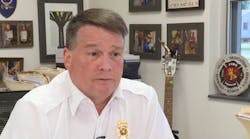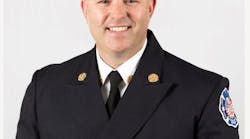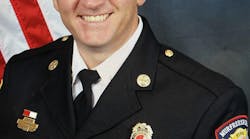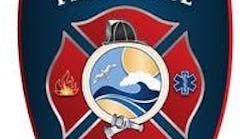July 09--A Columbus Fire battalion chief could face discipline for insubordination after an internal investigation found that he disrupted a pilot program intended to more efficiently respond to emergencies.
Battalion Chief Jack Reall, also president of the International Association of Fire Fighters Local 67, was served with charges on June 23 that also include neglect of duty and violating rules of conduct for supervisors.
The three charges stem from an early-morning argument between Reall and Assistant Chief Karry Ellis at a fire station in September, according to Fire Division documents obtained by the Dispatch.
The Fire Division launched a pilot program that morning to reduce the number of paramedics who respond to routine calls, allowing the division to disperse medics elsewhere. Instead of two paramedics on a truck, there would be one medic and a basic emergency-medical technician, or EMT.
Paramedics have the certification and training to administer prescription drugs to patients; EMTs usually do not. Paramedics also are paid more.
Fire administrators said the idea was meant to reduce costs and improve efficiency.
An internal audit found about 84 percent of the division's roughly 150,000 runs in 2012 were non-emergency runs. Of those 125,000 runs, 9 out of 10 were considered basic runs: responses to calls such as a broken arm, sting, headache, hurt back or dislocation in which the patient is not in mortal danger.
Such runs continue to increase year after year and cost taxpayers about $90 million in 2012. They also accounted for a majority of the division's $5.5 million in overtime pay, according to city budget documents.
Reall was against the plan from the start and said fewer paramedics meant lower-quality service. Many firefighters posted on social media when the pilot program was announced to say that the division was trying to reduce the number of paramedics on duty.
Reall was on duty at Station 10 in Franklinton the morning the pilot plan launched. It rolled out at Station 10 and at Station 6, at 5750 Maple Canyon Dr.
Ellis was also at the station and said he heard Reall telling paramedics not to follow orders to respond to certain runs. Ellis said he repeatedly warned Reall he was defying a direct order to follow the plan when Reall said, "We are not going to do it that way."
Ellis and Reall then went into another room, where firefighters witnessed what appeared to be an argument. Ellis said Reall was letting his role as union president get in the way of his duties as a battalion chief.
One firefighter told investigators the incident was "a debacle."
Firefighters said Reall's directions conflicted with the division's order, and created confusion. At one point, an emergency call reporting that someone was having a seizure came in, but paramedics were so confused that no one immediately responded.
Ellis ordered the pilot program -- the paramedic-EMT team -- to respond after about 90 seconds, according to records.
Reall said this week the incident "was a huge misunderstanding" that he hoped wouldn't result in an investigation. He said he was trying to clear up confusion among firefighters that morning by telling them how to respond to certain runs.
Reall said the plan was not presented well to firefighters and paramedics and was "not well thought out."
Originally, fire administrators said the experimental teams were going to respond only to basic runs in which a patient was not in grave danger.
But Reall said that when the plan rolled out, the experimental teams were responding to all runs, with additional paramedics on other support vehicles to arrive on the scene for the more severe cases.
The only misunderstanding was that Reall disobeyed an order, Ellis said.
"When a superior officer is enforcing the policy of the chief and a subordinate defies that order, that is a misunderstanding," Ellis said yesterday.
Reall is charged with insubordination for "refusing to obey ... orders, policies and procedures ... including flagrant disregard of the directions or orders of any authorized supervisor or designee ... and ... flouting the authority of a superior officer."
The neglect of duty charge is related to the confusion that led to the 90-second delay in medic response. The third charge of violating rules of conduct is related to causing the confusion by giving orders that deviated from the original plan.
The charges could result in termination, though Reall likely faces a suspension since he has no real blemishes on his career.
He has a hearing before Chief Gregory A. Paxton on July 29. Paxton will likely take a few weeks to decide on discipline.
@DispatchSully
Copyright 2014 - The Columbus Dispatch, Ohio





